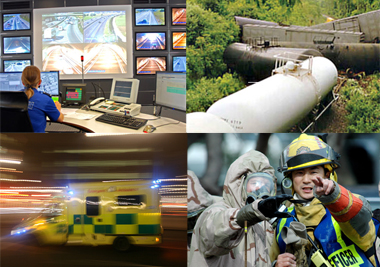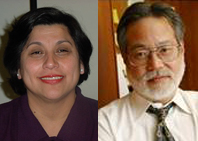Identifying Strategies, Engaging the Latino Community in Disaster Preparedness
New York•New Jersey Preparedness and Emergency Response Learning Center at UAlbany presents free webcast on March 22
 |
|
A free webcast from UAlbany's School of Public Health focuses on disaster preparedness and the Latino community.
|
ALBANY, N.Y. (March 21, 2012) -- While more than 50 million U.S. residents identified themselves as Latino in the 2010 U.S. Census, little attention has been paid to the impact of cultural barriers on relief and preparedness efforts. The New York•New Jersey Preparedness and Emergency Response Learning Center at the University at Albany will examine this issue during a free webcast on Thursday, March 22, 2012 from 11 a.m. – noon.
The goal of the webcast is to provide public health and preparedness professionals with the tools needed to identify strategies for assessing the needs of a Latino community, as well as engaging community members in emergency response and preparedness activities. The event will also address culturally sensitive, cross-cultural risk communication methods that incorporate issues of language, trust, literacy and the use of new media.
 |
|
UAlbany Associate Professor Blanca Ramos and Executive V.P. of La Raza Charles Kamasaki
|
"The program highlights the importance of engaging the Latino community in preparedness activities," said Edward Waltz, director of NY•NJ PERLC and UAlbany's Center for Public Health Preparedness at the School of Public Health. "Improved responsiveness to cultural considerations can decrease the barriers that put Latinos at increased risk during emergencies."
Keynote speakers include Blanca Ramos, associate professor at UAlbany’s School of Social Welfare and a past vice president of the National Association of Social Workers, and Charles Kamasaki, executive vice president of the National Council of La Raza. The speakers will explore cultural constructs and coping mechanisms among Latinos that may influence behavior in preparing for and recovering from a public health disaster.
The project is supported under a cooperative agreement from the Centers for Disease Control and Prevention (CDC). The contents of this program do not necessarily represent the official views of the CDC.
Participants can register for the broadcast here.
![]() For more news, subscribe to UAlbany's RSS headline feeds
For more news, subscribe to UAlbany's RSS headline feeds
A comprehensive public research university, the University at Albany-SUNY offers more than 120 undergraduate majors and minors and 125 master's, doctoral and graduate certificate programs. UAlbany is a leader among all New York State colleges and universities in such diverse fields as atmospheric and environmental sciences, business, education, public health,health sciences, criminal justice, emergency preparedness, engineering and applied sciences, informatics, public administration, social welfare and sociology, taught by an extensive roster of faculty experts. It also offers expanded academic and research opportunities for students through an affiliation with Albany Law School. With a curriculum enhanced by 600 study-abroad opportunities, UAlbany launches great careers.


